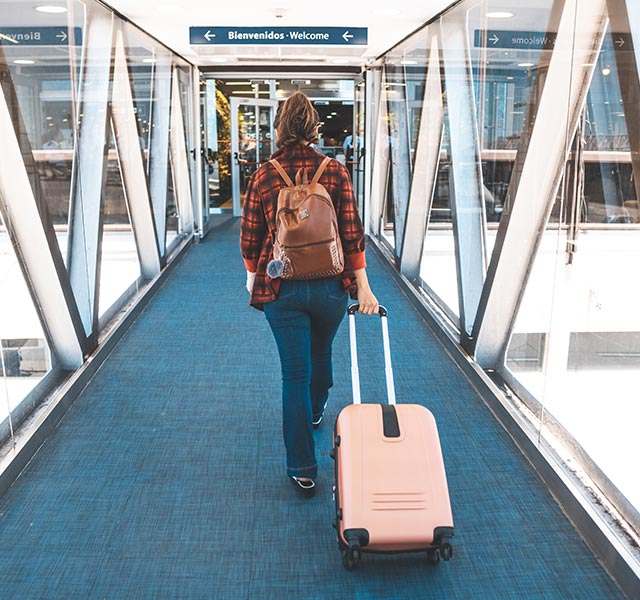It can be a challenge traveling with epilepsy. In this era of heightened security and suspicion, a seizure may be mistaken for an aggressive act. In addition, just the thought of getting into a confined space like a plane – where you’re more than 30,000 feet away from the nearest medical assistance – could make you rethink going anywhere at all.
However, you don’t need to avoid traveling with epilepsy. “With the proper planning, you can help to ensure a safer and more enjoyable trip,” says Brien Smith, M.D., a Henry Ford neurologist specializing in epilepsy treatment.
1. See your doctor. Ask about any precautions you should take during your trip and have your doctor provide a letter explaining your condition, the medications you take and any implanted device – which you can show to airport security or any other mass transportation officials. In addition, get a copy of your medical records to carry with you, in case you need to seek treatment while out of town.
2. Make a medication plan. Long flights, delays, time zone changes. All of these can mean a significant change in your routine and the potential for missed medications. “To ensure that you have the medication you need, when you need it, there are several steps you can take to make a medication plan,” says Dr. Smith. These include:
- Packing extra medication to last more than the length of your trip.
- Keeping medication in the original bottles. Ask your pharmacist for extra empty bottles with the information printed on them, if necessary.
- Packing some in both your checked and carry-on baggage, in the event that one is lost or stolen.
- Writing down your pharmacy contact information, in case you need to get a refill.
- Setting alarms on your watch or phone to ensure you can take your medicine on time, even if you will be in a different time zone.
- Asking your doctor about taking rescue medication to help adjust to any altitude changes.
3. Carry identification. Carry a medical ID bracelet and, if you have a vagus nerve stimulator or responsive neurostimulator (RNS) implant, make sure you have your device registration card.
4. Be proactive in communicating. Let Transportation Security Administration (TSA) know about your epilepsy. The TSA offers detailed instructions on special procedures that people with medical conditions should follow to ensure a smooth security check, including for medications and implants. If you are traveling alone, you can also let a flight attendant and your seatmates know about your epilepsy.
5. Bring a travel partner. If possible, travel with a friend or loved one who knows how to provide seizure first aid. They can also explain the situation to those around you.
6. Get enough sleep. Lack of sleep, being overtired and jetlag may increase your seizure risk. It’s easy to get overtired while traveling, so make sure to get enough sleep and plan some extra time for rest and recovery.
7. Wash your hands. Especially during cold and flu season, it’s important to practice good hygiene and minimize your exposure to germs. If you get sick, it may increase your seizure risk.
8. Get vaccinated. Traveling to an international location? “With the exception of some anti-malarial medications, most vaccines or preventive antibiotics will not affect your epilepsy or interact with your medication,” says Dr. Smith. “When in doubt, consult with your doctor.”
9. If necessary, consider something other than air travel. If you have uncontrolled seizures, you may wish to avoid air travel and take a bus or train. Even if you avoid all mass transportation and choose to drive to your out-of-town destination, you should limit the number of hours you drive and take regular breaks to avoid getting too tired. Also be aware that states have different regulations regarding driving and epilepsy.
10. Sit back, relax and enjoy your trip. For some people with epilepsy, stress can be another potential seizure trigger – and traveling certainly can be stressful. With traffic, crowds, long lines and rushing to get there, it’s easy to get anxious. However, it’s important to remain calm, even when things don’t go quite as planned.
You can also find more helpful tips on traveling with epilepsy by reading the International Bureau for Epilepsy’s Traveller’s Handbook for People with Epilepsy.
Learn more about epilepsy treatment at Henry Ford. For an appointment, visit henryford.com or call 1-800-436-7936.
Dr. Brien Smith serves as Chair for the Department of Neurology at Henry Ford Health.



